It is not just India that is witnessing a continuous increase in food prices, prices are on the rise across the world.
While it is the poor who are bearing the most brunt, food inflation is also hurting global growth.
Let us take a look at the impact of high food prices and the reasons.
(The data is based on Food and Agriculture Organization's figures)
Click NEXT to see the impact...
8 reasons why food prices are rising globally
Image: Several countries banned export of food items in late 2007.Food price timeline
September 2007: Several countries around the world ban export of food items
February 2008: Protests against high food prices break out in many countries, including India, Bangladesh, Egypt, Indonesia, Jordan, Burkina Faso, Haiti and Cambodia.
September 2008: Lehman Brothers files for bankruptcy, financial crisis envelopes the world.
May 2009: Number of hungry crosses the one billion-mark for the first time.
July 2010: Drought and fires wipe out Russia's grain crop.
August 2010: Pakistan hit by monsoon floods
September 2011: Food and Agriculture Organization's Food Price Index hits record high.
. . .
8 reasons why food prices are rising globally
Image: Rising food prices have pushed 44 million people into extreme poverty.Rising food prices have pushed 44 million people into extreme poverty and hunger since June 2010.
That's twice the population of Australia.
. . .
8 reasons why food prices are rising globally
Image: Indians spend 52 per cent on food.Family spending on food
Americans spend seven per cent on food
Guatemalans spend 36 per cent on food
Kenyans spend 45 per cent on food
Azerbaijanis spend 49 per cent on food
Indians spend 52 per cent on food
. . .
8 reasons why food prices are rising globally
Image: A poor family spends 70 per cent on food.A poor family in a poor country spends as much as 70 per cent of its income on food.
The rest is spent on school, rent, medical and clothing, etc.
. . .
8 reasons why food prices are rising globally
Image: High food spending cuts into other essential areas, such as education.What happens when food prices go up?
A poor family is forced to spend 85 per cent of its income on food, which means other areas, such as schooling and medical, are neglected.
Click NEXT to see the reasons for the global price rise...
8 reasons why food prices are rising globally
Image: Prices are 15 per cent higher than in September 2010.How high are food prices really?
The global food price index produced by the UN Food and Agriculture Organization reached a historic peak of 238 points in February, well above the peak of 213.5 reached in 2008.
Prices have since eased and in September the index registered 225 points. However, it is still 15 per cent higher than in September 2010.
. . .
8 reasons why food prices are rising globally
Image: High food prices are likely to continue.So prices are on their way down again then?
For now, they are certainly down.
But, according to FAO, high food prices are likely to continue and volatility may increase in coming years, making farmers, consumers and countries more vulnerable to poverty and food insecurity.
. . .
8 reasons why food prices are rising globally
Image: Extreme weather will become more frequent in coming years.Why should volatility continue?
One reason is that experts expect extreme weather will become more frequent in coming years, and this will have an impact on crop production.
Another is that there will be increasing demand for food from consumers in fast-growing economies.
Meanwhile, growth in biofuels is also a factor, the FAO report says. Of course, there is also the simple fact that the world's population is growing.
. . .
8 reasons why food prices are rising globally
Image: Domestic food prices have been soaring in the Horn of Africa.Are high food prices an issue in the hunger crisis now affecting the Horn of Africa?
Domestic food prices have been soaring in the Horn of Africa, the World Bank reported on August 15.
Its Food Price Watch found that in Somalia over the last year, prices of red sorghum and white maize, both staple foods, have increased up to 240 per cent and 154 per cent respectively.
. . .
8 reasons why food prices are rising globally
Image: Countries will also be vulnerable if they already have high inflation.What sort of countries are vulnerable to rising food prices?
High food prices are a problem for poor countries that have to import a lot of food to feed their populations.
Countries will also be vulnerable if they already have high inflation, have limited foreign currency reserves and if their local currencies are depreciating against the US dollar.
. . .
8 reasons why food prices are rising globally
Image: Some families cut the number of meals they have a day.How do people in poor countries cope?
In some of the countries where WFP works, there are households that spend as much as 60-80 per cent of their income on food.
In these situations, higher prices clearly hit hard. Families cut the number of meals they have a day, they buy cheaper, less nutritious food and spend less on things like schooling and medicine.
. . .
8 reasons why food prices are rising globally
Image: Many farmers are unable to produce enough food for themselves.Aren't high food prices good for poor farmers?
High food prices could represent an opportunity for people who make a living from agriculture.
The trouble is that many of these people don't produce enough food even for themselves, let alone to sell any.
Many do not have access to the markets where prices are higher nor the resources they need for inputs like fertilizer to increase their yields.
. . .
8 reasons why food prices are rising globally
Image: It's crucial to support smallholder farmers.How can we ensure a stable food supply to the most vulnerable populations?
There are several things that countries can do. A key one is to develop emergency food reserves systems.
Another important answer is to scale up 'social safety nets' such as mother and child nutrition programmes and school meals programmes.
It's also crucial to support smallholder farmers, many of whom are women.
Strengthening commitments to exempt humanitarian food from export bans would also be advisable.

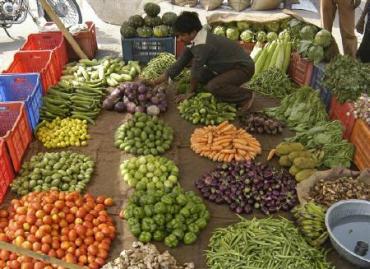
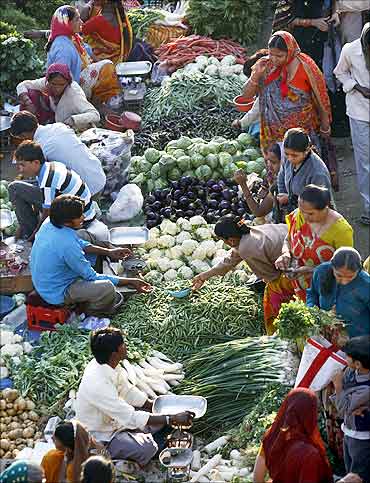
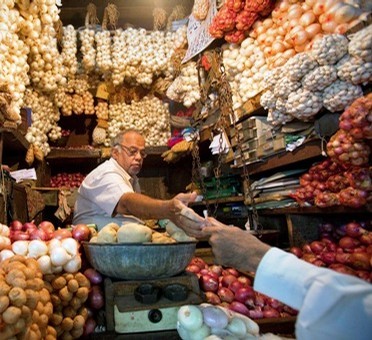

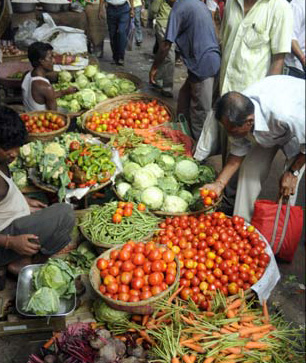
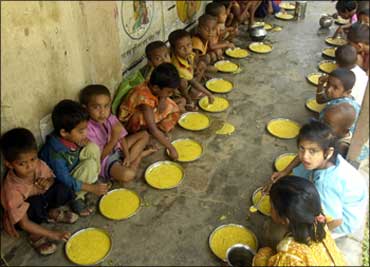



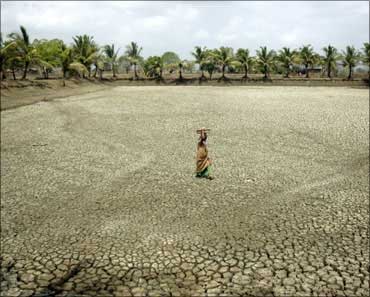
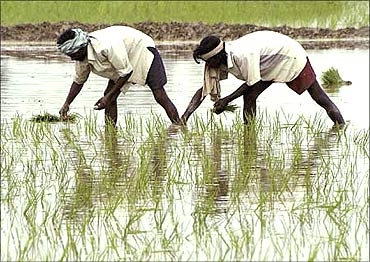



article